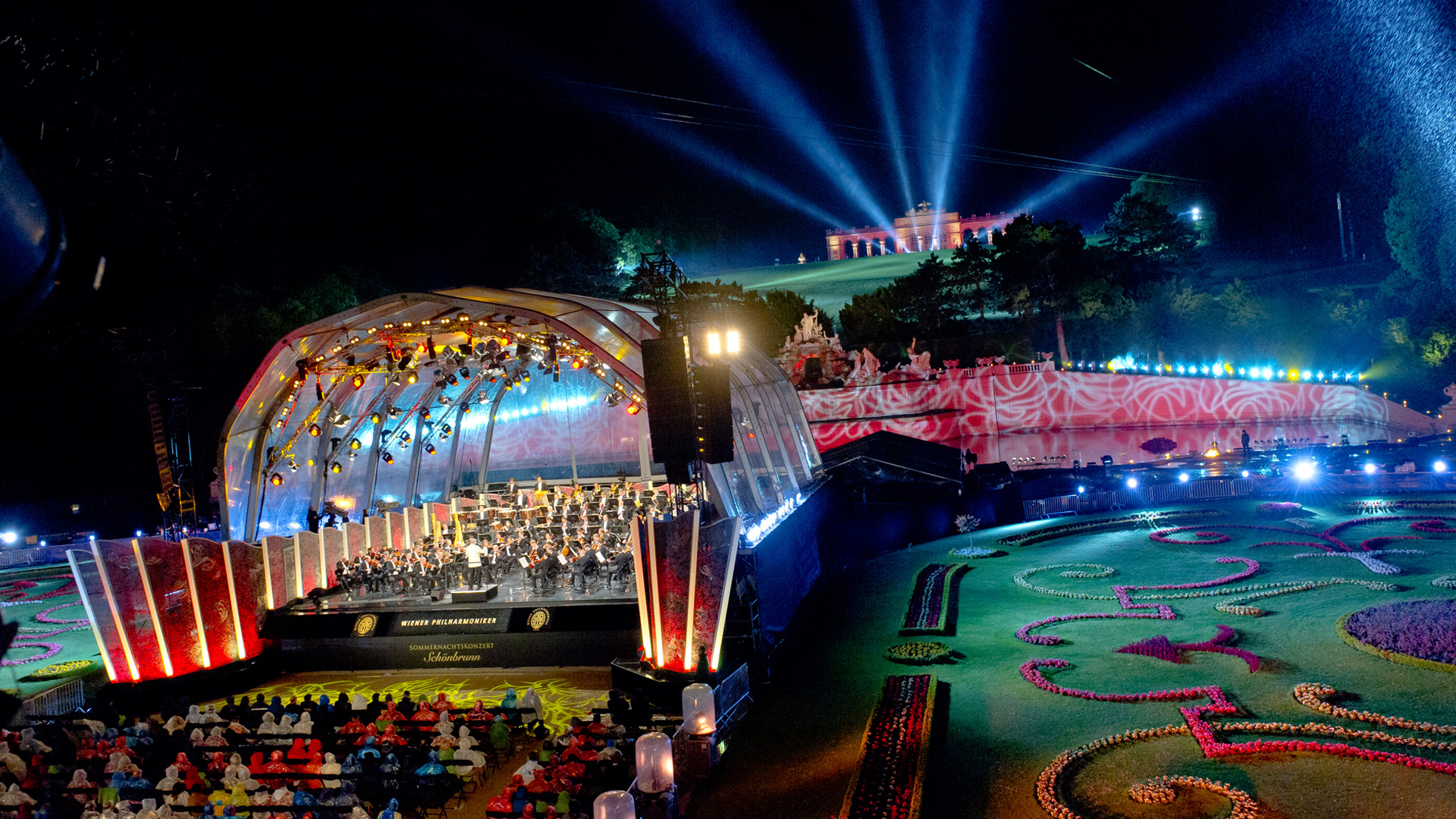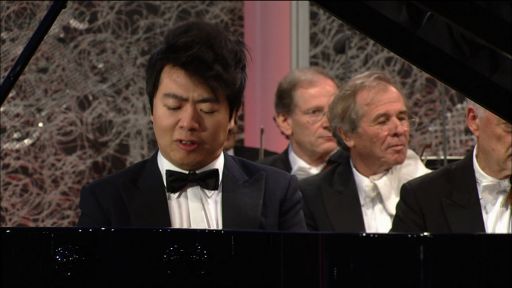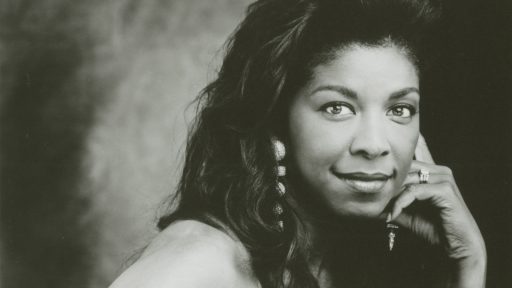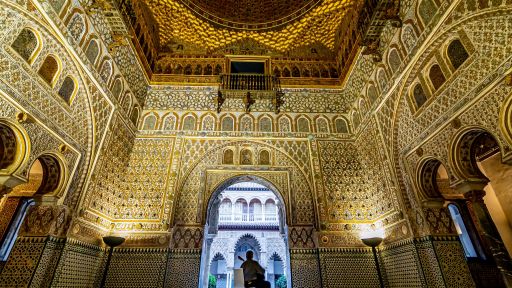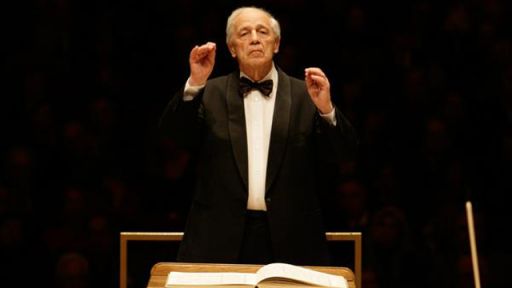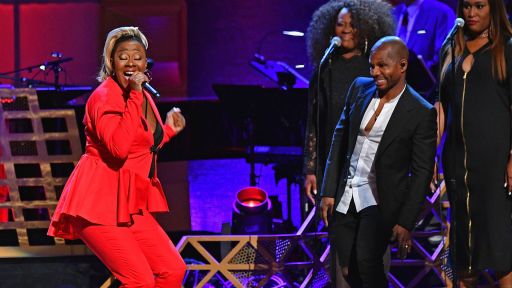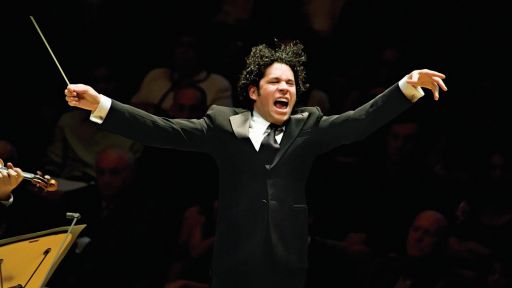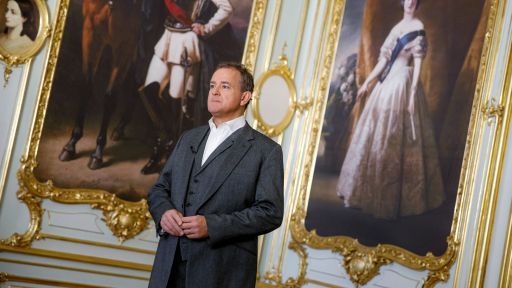Led for the first time by a guest conductor Christoph Eschenbach, the world-renowned Vienna Philharmonic returns for their 11th open-air concert in the magnificent gardens of Austria’s Imperial Schönbrunn Palace, a UNESCO World Cultural Heritage site. The Vienna Philharmonic Summer Night Concert 2014 airs on THIRTEEN’s Great Performances, Friday, August 22, 2014, at 9 p.m. on PBS. (Check local listings.)
The concert soloist will be the internationally acclaimed piano virtuoso Lang Lang who plays Strauss’ “Burleske.” As it happens, Eschenbach (a former star pianist himself) was one of the conductors who recognized and encouraged Lang Lang’s talent very early, initiating a long-standing artistic friendship. The Chinese pianist encores Mozart’s famous “Turkish March.”
Lang Lang has been heralded as the “hottest artist on the classical music planet” by The New York Times, has played sold out concerts in every major city in the world and is the first Chinese pianist to be engaged by the Vienna Philharmonic, Berlin Philharmonic and the New York Philharmonic orchestras.
Time magazine recently included Lang Lang in the “Time 100,” the magazine’s annual list of the 100 Most Influential People in the World, naming him as a symbol of the youth of China, and its future. Lang Lang is the cultural ambassador of the cities of Shenzhen and Shenyang. In July 2012 he relayed the London Olympic torch in London just before the opening of the XXX Olympiad.
The outdoor concert, recorded May 29 in the magnificent baroque gardens of the palace, is free to thousands of attendees in Vienna, and serves the orchestra’s objective of making classical music accessible to a broad spectrum of concertgoers beyond its usual, core audience.
No other great composer enjoyed a closer connection to the Vienna Philharmonic Orchestra than Richard Strauss, and on June 11, 2014, the music world celebrates Strauss’ 150th birthday. The friendship was so strong that Strauss celebrated his 75th and 80th birthday in the presence of the Philharmonic in Vienna. The two composers he greatly admired, Hector Berlioz and Franz Liszt, play their own part in the concert, while Strauss himself dominates the program with “Burlesque” and “Till Eulenspiegel.”
Strauss conducted both works at concerts with the Vienna Philharmonic Orchestra. Following their first encounter in Salzburg in 1906, he invited the ensemble to take part in the “Richard Strauss Week” in 1910 in Munich, where he conducted 18 separate works among them being “Burlesque” and “Till Eulenspiegel.”
Hector Berlioz and Franz Liszt also met the Vienna Philharmonic Orchestra personally. During the first of his stays in Vienna from 1845 to 1846, Berlioz attended many of the Philharmonic’s performances under the baton of its founder Otto Nicolai and went on to conduct the Philharmonic himself.
Franz Liszt worked repeatedly as both pianist and conductor with the Vienna Philharmonic Orchestra between the years 1846 and 1874.
Music Program
Franz Liszt
Mazeppa, Symphonic Poem
Richard Strauss
Burleske for Piano and Orchestra
Wolfgang Amadeus Mozart
Turkish March
Hector Berlioz
Overture to the Opera Benvenuto Cellini
Richard Strauss
Till Eulenspiegel’s Merry Pranks
Johann Strauss
Wiener Blut “Viennese Spirit” Waltz
Johann Strauss
Furioso-Polka
About Christoph Eschenbach
In demand as a distinguished guest conductor with the finest orchestras and opera houses throughout the world, Eschenbach began his tenure in September 2010 as Music Director of the National Symphony Orchestra as well as Music Director of the John F. Kennedy Center for the Performing Arts in Washington D.C. A prolific recording artist over five decades, Christoph Eschenbach has an impressive discography as both a conductor and a pianist on a number of prominent labels. His many honors include the Légion d’Honneur; Commandeur dans l’Ordre des Arts et des Lettres; the Officer’s Cross with Star and Ribbon of the German Order of Merit; and the Commander’s Cross of the German Order of Merit for outstanding achievements as pianist and conductor. He also received the Leonard Bernstein Award from the Pacific Music Festival, where he was co-artistic director from 1992 to 1998.
Production Credits

